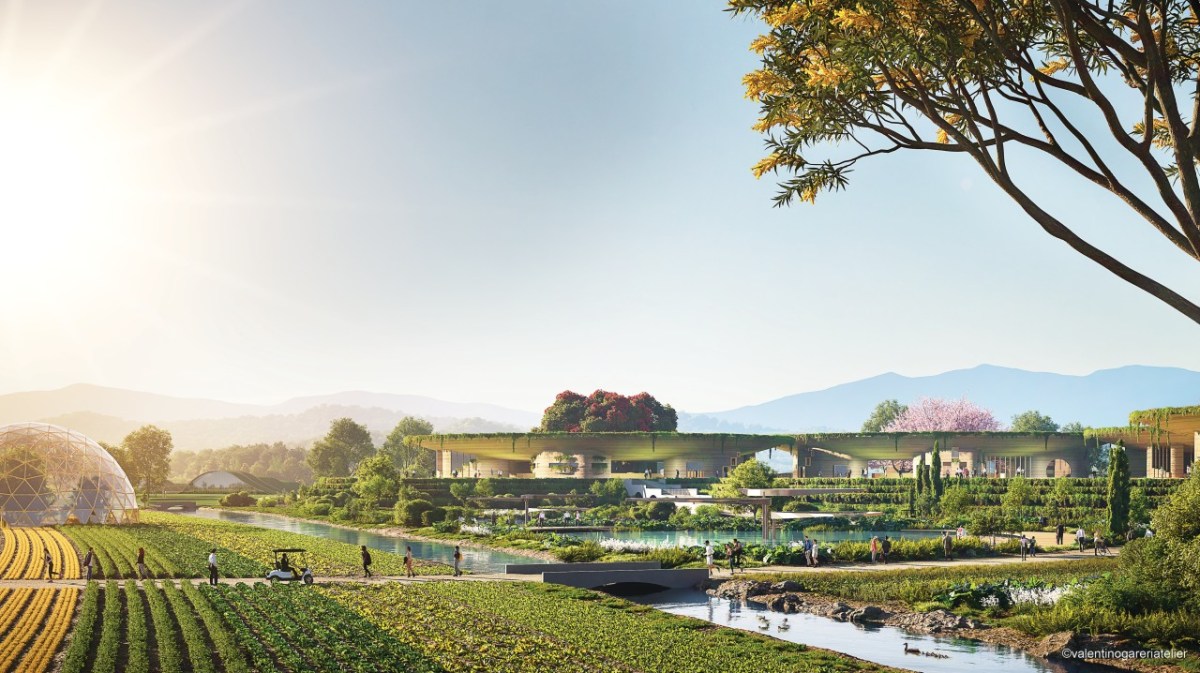Sustainability is about more than just our investments, and whether we recycle, it’s also about our lifestyle, and how we live.
While you’re likely familiar with the circular economy movement, which takes a systems-wide approach to reforming the way we use, and reuse, resources. You may not have come across a model that puts it into practice, the concept of a Circular Economy Village (CEV).
It’s a residential development concept that aims for self-sufficiency and zero-waste, while building a unique sense of community and social cohesion.
Steven Liaros is CEO of PolisPlan, a property development consultancy, specialising in CEVs. His firm recently chose Valentino Gareri Atelier to develop a village concept plan.
“We are envisioning a new way of living where people can experience a closer relationship with nature and the food they eat, building a strong sense of community in the process.” Steven says.
He explains the villages would incorporate precinct-scale circular economy infrastructure, renewable energy micro-grids, shared electric vehicles and regenerative agriculture integrated with build-to-rent housing and coworking hubs.
Water systems are managed as a close-loop, where a chain of ponds feed down to a lower pond that also acts as a wetland and overflow. Pumps can then be used to push water back to the top of the system, so the flow can continue.
The model is still in the planning stage, but it’s closer to becoming a reality after Bellingen Shire Council included the potential for a pilot project to be included in their Housing Strategy. The council actively sought out projects that were focussed on ‘exceptional social and environmental outcomes’.
The NSW Government is funding part of the pre-feasibility stage of the pilot as part of the Sustainability Advantage Impact Challenge.
The development model, the technology and the infrastructure are all only at proposal stage, with a central challenge being the practical integration issues around planning consent, as well as infrastructure and waste levies.
Michael McElligot is CEO Smart Green Group, he’s a certifier with the Living Futures Institute, but he’s also a member of the Sustainable Digitalisation Project. SDP recognises the huge potential for digitalisation of infrastructure and systems to better manage resources, and improve people’s lives.
“With the CEV we are looking to raise the bar even further by applying our Circular Economy Impact Indicators, and a sustainable digitalisation lens to deliver one of the most sustainable master plans in the world to date”. Michael says.

